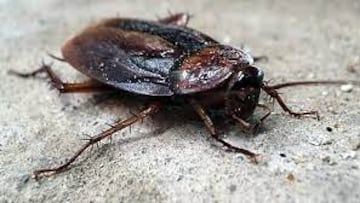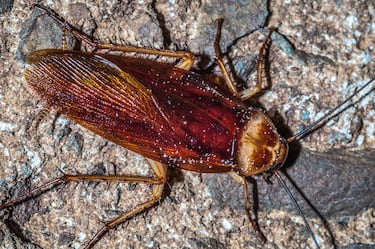Why you shouldn’t squash a cockroach
Cockroaches are stronger than you think. The reason why you shouldn’t squash a cockroach

It’s instinctive: you see a cockroach, and you crush it. Or you run away.
However, entomologists advise against the former because cockroaches can support 900 times their weight. Lightly stepping on the insect or swatting it with a newspaper is not the best plan. You have to hit it very hard—and even then, it will not always die.
There is a reason these bugs have crawled the earth for so long: they are tough, and if you aren’t careful, they can infest your home and spread disease.

Fumigation the best way to kill cockroaches
“They are insects with extreme adaptability,” entomologist and pest control expert Ryan Smith told a recent interview with the Spanish newspaper ABC.
“Thanks to their strong exoskeleton, they can withstand great force,” explains Smith.
The exoskeleton, is flexible and strong and makes a newspaper no worthy opponent.
Cockroaches can withstand very serious injuries and survive without food for months, qualities that also serve to make them such a durable animal. That’s why fumigation is one of the most effective methods of cockroach control.
Experts additionally note that if you don’t destroy their exoskeleton, cockroaches can play dead and run away later.
Read more from AS USA:
Squashing a cockroach can spread disease
Related stories
The World Health Organization also advises against crushing them for hygiene reasons. According to the body, which classes cockroaches as “unhygienic scavengers in human settlements,” squashing them can spread bacteria into the environment that can lead to asthma, allergies, and illnesses.
Indeed, salmonella, staphylococcus, and streptococcus are some of the illnesses that cockroaches can cause, in addition to dysentery, diarrhea, cholera, and typhoid fever.


Complete your personal details to comment